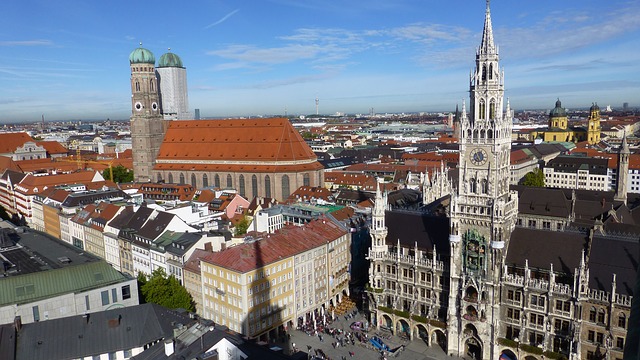- Target: 100 % of electricity demand from renewable energy sources by 2025.
- Status: In progress
- RES: Geothermal, hydropower, biomass and wind energy.
- Implementation: The city of Munich in Germany today already produces 2.9 billion kWh per year from renewable sources, exceeding the demand of all private households. By 2025, the current share of 39% is projected to increase to 100% equalling to 7.5 billion kWh/year and requiring investments of roughly 9 billion €. While projects in Munich and its hinterland are prioritized, the electricity will be produced by power plants located in Germany and across Europe. Complimentary to the 100% target, the city plans to also supply 100% of long-distance heating from renewable sources. The energy will be harvested from geothermal energy as well as biomass and wind power. The city's goal is based on a longstanding history of introducing policies to increase the share of renewable energy. Back in 1982, the city council asked the administration to push the use of renewable energy. In 2007, it was decided that the share of renewable energy was to be increased by 5% until 2020. As it became clear that this goal could be outdone, the 100 % target was set. Throughout the process, citizens, city planners and craftsmen have influenced the development which has increased public support of the policy. A crucial aspect that made the fast advancement of renewable energy possible is the fact that Munich’s public utilities are entirely in public hands which enabled the city council to pursue their ambitious plan.
- Population: 1,456,039 (2017)
- Area: 310.43 km2 (119.86 sq mi)
- Link: https://munichnow.com/munich-aims-for-100-green-energy-by-2025/

- German